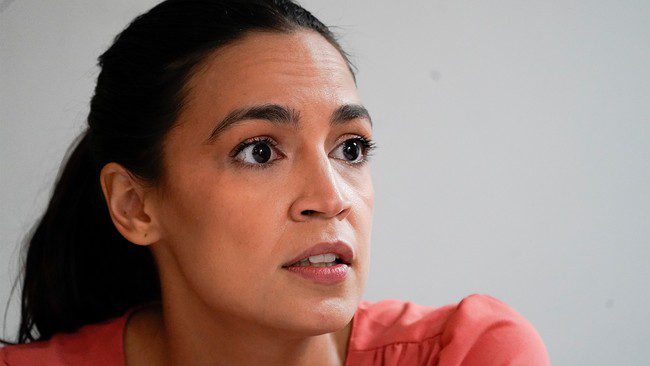In an unforeseen political twist, New York Congresswoman Alexandria Ocasio-Cortez (AOC) has kindled a fire of discord among progressives by endorsing President Biden’s re-election bid. Looming high on the political radar, progressive stalwart Ocasio-Cortez incurred the ire of numerous progressives last week, as she went public with her support for Biden during an episode of “Pod Save America”. This move, which has redefined her political trajectory in the eyes of many, has attracted an upheaval of criticism against AOC for what some are dubbing as a controversial sidelining of alternative Democratic contenders, Robert F. Kennedy Jr. and author Marianne Williamson.
Endorsing Joe Biden now is a betrayal of progressive interests. It was true of Bernie Sanders’ endorsement & its true of AOC.
*Most* Democrats don’t want Biden to run. Bernie and AOC are tragically out of step w/ the movement & the moment. https://t.co/WFC5MFUkcH
— Briahna Joy Gray (@briebriejoy) July 7, 2023
Notably, AOC’s endorsement of Biden was not lukewarm. She responded to queries about her support for Biden by saying, “I believe that given that field, yes.” Further adding, Ocasio-Cortez conceded that there were formidable hurdles for the Biden administration, yet emphasized that despite the various limitations, Biden has navigated his presidency relatively adeptly. AOC voiced specific approval for the American Rescue Plan and the Inflation Reduction Act followed by a somewhat diplomatic critique averring, “But, you know, there are also areas that I think could have gone better. The president and I think the Democratic Party in general continues to struggle with immigration.”
However, AOC’s political gambit has sparked significant backlash within progressive circles. Notably, Briahna Joy Gray, former national press secretary for Bernie Sanders’s 2020 presidential campaign, minced no words in expressing her disapproval of AOC’s endorsement of Biden. Gray labeled AOC’s move as a “betrayal,” and questioned the timing and the lack of concessions demanded in return for the endorsement. Gray, in pointed tweets, also highlighted how this endorsement coincided with Biden’s controversial advocacy of supplying cluster bombs to Ukraine.
In 5 short years, AOC went from saying she & Biden belong in different Parties to endorsing Biden on the day he sends cluster bombs to Ukraine.
We have no Left representation in US Congress. They've been completely captured by corporate Dems. https://t.co/M9PipR3UZg
— Leila (@AroundEff) July 7, 2023
Discontent with AOC’s seemingly sudden shift within the political landscape was not confined to Gray and her circle. There is a palpable undercurrent of disappointment and betrayal swirling within progressive quarters, with social media reactions emphasizing AOC’s past statements, positing that she and Biden belong to different parties based on their distinct political leanings. The broader consensus appears to mirror this sentiment with numerous progressives arguing: in her endorsement of Biden, AOC appears to have discarded her former progressive ideological stance.
Biden is advocating for sending cluster bombs to Ukraine and you’re endorsing him? AOC once said in a normal country, she and Biden wouldn’t be in the same party. Maybe that was once true. Not anymore.
— Briahna Joy Gray (@briebriejoy) July 7, 2023
In this latest chapter of progressive politics, the dilemma is not just about Ocasio-Cortez’s political leanings but also the pragmatic acceptance of realpolitik. Is AOC’s endorsement a departure from her proclaimed ideals or is it merely a pragmatic move to position herself as a mainstream Democrat with a realistic shot at influencing policy beyond progressive circles?
The significance of AOC’s recent endorsement of Biden cannot be overstated. There is a sense of urgency within the progressive movement about clarifying its ideological tenets and political boundaries. This incident has intensified the long-standing debate about the future course of progressive politics, the ideological pivot that endorsers may follow, and the crucial issue of representative democracy. The controversy surrounding Ocasio-Cortez’s endorsement certainly raises a larger conversation about political allegiance, ideological shifts, and the pragmatic realities of governance. This incident arguably sets the stage for an intriguing drama unfolding within American politics—the ostensible dilution of ideological puritanism and the acceptance of more moderate, mainstream political currents.



